 Vampire Weekend's Surprising Jewish Stories
Vampire Weekend's Surprising Jewish Stories
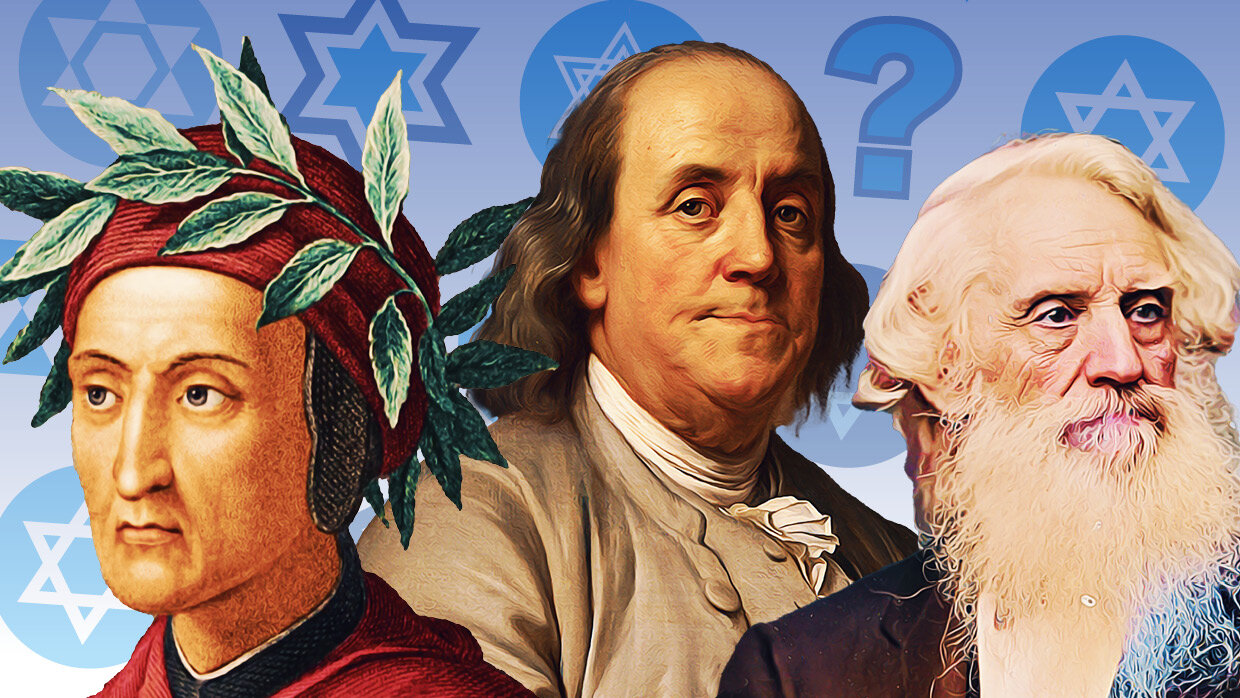

6 min read
Can you get all the answers right?
The Jewish people have been through a lot of ups and downs throughout history. Can you identify which historical figures helped us rise and which ones were a stumbling block?
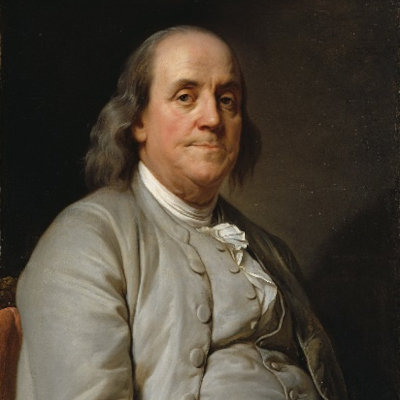
Inventor, American founding father, and one of the few people on U.S. currency who wasn’t a president, Benjamin Franklin contributed to the fields of science, journalism, and humanist philosophy. How was he towards the Jews?
Answer: Good.
The fact that Benjamin Franklin supported Jews, such as in 1788 when he helped Philadelphia's Congregation Mikveh Israel stave off financial ruin, probably doesn’t come as any surprise to you. But what might come as a shock is that a highly antisemitic speech was attributed to the founding father. “Discovered” in 1934 within the Private Diary of Charles Pinckney, South Carolina’s delegate to the Constitutional Convention, the entry records a lengthy speech warning the fledgling nation of the dangers of trusting the corrupt Jewish people and going as far to call them “vampires.”
The speech came to be known as “The Franklin Prophecy” and was published in the fascist publication Liberation. The Franklin Prophecy was republished in many places, including Nazi Germany to be used as propaganda.
In 1935, historian Charles A. Beard investigated the matter and found no corroborating evidence or original sources and deemed the speech a “barefaced forgery”.
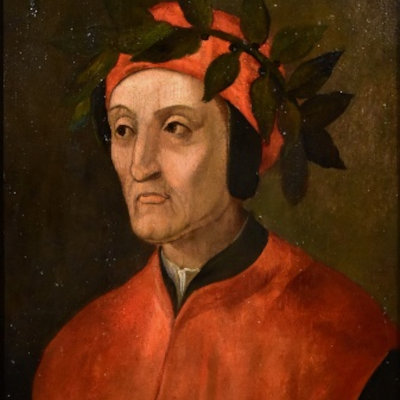
Prolific Italian poet and writer of The Divine Comedy, Dante's depictions of Hell in Inferno are seared into humanity’s consciousness. Was the author's depictions of the depths of Hell good for the Jews or bad?
Answer: Good!
You'd think if he didn't like the Jews, we'd find some pretty horrific depictions of Jews in the depths of eternal damnation, but very few references are made about them there. In fact, "Old Testament" figures (Abraham, Rachel, Joshua) are found in Paradise. Jews who persecuted Jesus and Christian Saints are found in Purgatory, but not Hell. What's the reason for Dante's reasonably positive depiction of the Jews?
Dante’s writings contained strong satirical elements, lambasting those in power at the time. Christians are primarily the ones to occupy Hell because Christians were who he was aiming to criticize. So even though if you delve deeply into the Comedy you can find criticism of Jews as well, that was not his primary target as he was not interested in vilifying an easy target, the Jews of the diaspora.
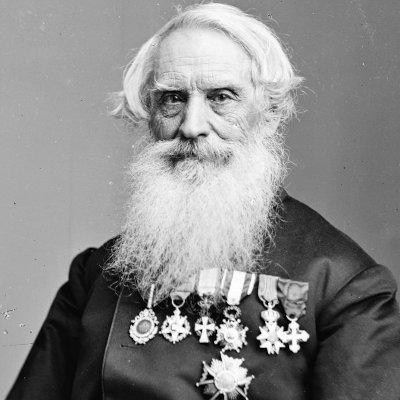
Painter and inventor, Samuel Morse is credited with having created the single wire telegraph and developing Morse code. Were his revolutionary communications good for the Jews? Or did they need an S.O.S?
Answer: Bad
Unfortunately, Samuel Morse harbored some very troubling views against Catholics, Blacks, Jews, and more. He was fervently pro-slavery and almost 100% anti-immigration. Morse penned many books such as, Foreign Conspiracy Against the Liberties of the United States, which warned of aims to erode the control of from White Anglo-Saxon Protestants.
He wrote, “The Episcopalian, the Methodist, the Presbyterian, the Baptist, the Quaker, the Unitarian, the Jew, &c. &c., are alike anathematized, are together obstinate heretics, in the creed of the Papist. He wages an indiscriminate, uncompromising, exterminating war with all.” His inventions may have helped save lives, but his opinions surely may have led others to take them, inspiring hate and intolerance.
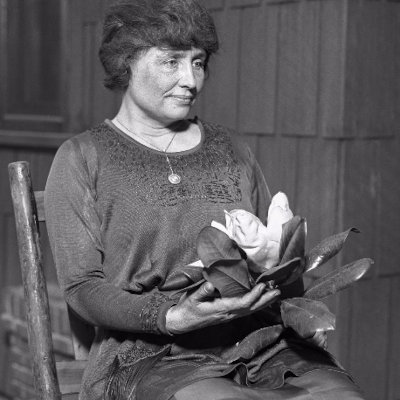
Known the world over as the ultimate example of overcoming obstacles, Helen Keller didn't let being blind and deaf stop her from changing the world. But did any of her work help the Jews?
Answer: Good
After learning language with Anne Sullivan, Helen Keller became the first deafblind person to earn a Bachelor of Arts degree in America. From there she championed causes for people with disabilities, for women’s rights, labor rights, and more. When she learned in 1933 that German universities were burning her books along with others, she wrote warning the world against Germany's antisemitism. She didn’t stop there.
According to the Jewish Press, in 1938 she wrote to the New York Times, urging them to publicize the Jews' horrible situation in Nazi Germany. After the war, she traveled to Israel in 1952 to work with the Jewish Institute for the Blind and the Association of the Deaf. While there she met with President Chaim Weizmann and Golda Meir. Helen Keller’s dedication to fighting for the rights of all proved to be one of integrity, which anyone can clearly see.
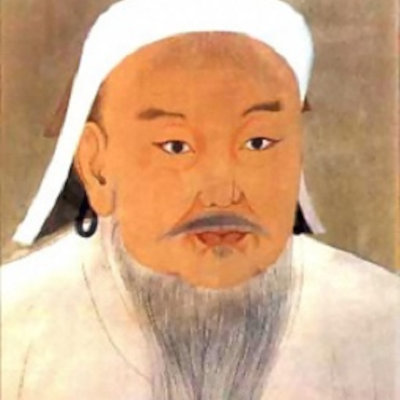
You wouldn't think the Mongolian conqueror would have much interaction with the Jews, given how remote his territory was from places Jews usually resided. But his vast empire extended to Persia and Mesopotamia. How did he behave towards the Jews in those regions?
Answer: Bad
For the most part, Genghis Khan was tolerant of the religions in the lands he conquered. Buddhists, Eastern Christianity, Islam, Manichaeism, and more enjoyed exemption from taxation and public service. However, there were periods when Khan changed his lenient decrees and forbade ritual slaughter for Jews and Halal for Muslims and demanded all eat by the Mongol method of eating.
During these times the Emperor also forbade circumcisions which also impacted Jews and Muslims. Though Genghis Khan didn't actively persecute Jews, he did view them in a class as less than Mongols and even referred to them as slaves. So life wasn’t horrible for Jews under the Emperor’s rule, but it was more difficult than other religions.

Between the Ancient Roman Empire and the modern era of Napoleon’s Empire, there’s only one ruler who reigned over most of western Europe. Charlemagne was in power during the 800s and helped support the struggling Pope against the advancing Islam. During this political/religious historical shift, how was the Emperor to the Jews?
Answer: Good (all things considered)
For a head of a major Christian entity during the Dark Ages, Charlemagne was pretty good to the Jews of the time. As long as the Jews knew their place, he gave Jews complete freedom with regard to their commercial transactions.
What did “knowing their place” entail? If a Jew wanted to bring charges against a Christian in court, a Jew required many more witnesses than a Christian usually required for their claims. A Jew couldn't work a Christian worker on Sunday, the Christian sabbath. A Jew couldn't force a Christian to go to prison because of a pledge they reneged on. And there were a few other unequal practices regarding Jews.
But considering how Jews have been treated by Rome and the Christians in the surrounding years, this was a pretty peaceful era.
